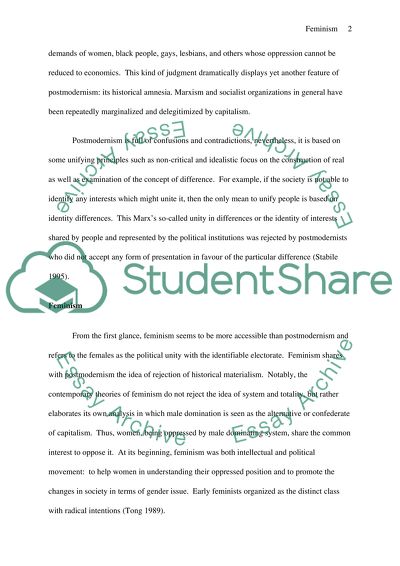Cite this document
(“Feminism and Postmodernism Essay Example | Topics and Well Written Essays - 2000 words”, n.d.)
Retrieved from https://studentshare.org/philosophy/1501794-feminism-and-postmodernism
Retrieved from https://studentshare.org/philosophy/1501794-feminism-and-postmodernism
(Feminism and Postmodernism Essay Example | Topics and Well Written Essays - 2000 Words)
https://studentshare.org/philosophy/1501794-feminism-and-postmodernism.
https://studentshare.org/philosophy/1501794-feminism-and-postmodernism.
“Feminism and Postmodernism Essay Example | Topics and Well Written Essays - 2000 Words”, n.d. https://studentshare.org/philosophy/1501794-feminism-and-postmodernism.


